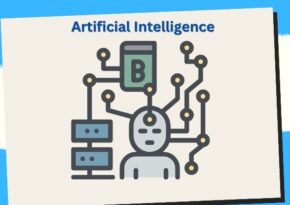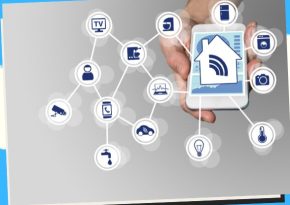
Privacy is a Fundamental Human Right: Here’s Why It Matters
Discover why privacy is essential for personal freedom and democracy, and how to protect it in today’s digital world.
Privacy is a Fundamental Human Right: Protecting Your Digital Life
In today’s interconnected world, privacy is not just a luxury—it’s a fundamental human right. As we increasingly live our lives online, from social networking to online banking, our personal information is more accessible than ever before. Yet, many of us are unaware of the extent to which our privacy is compromised daily. This blog will explore why privacy matters, the threats we face, and practical steps you can take to safeguard your digital life.
Why Privacy Matters 
Privacy is essential for maintaining personal freedom, security, and dignity. Without it, individuals can be subjected to unauthorized surveillance, identity theft, and other malicious activities. Privacy allows us to express ourselves freely, make personal choices without fear of judgment or retaliation, and engage in secure communications. Moreover, it is a cornerstone of democracy, fostering an environment where people can discuss ideas, critique power structures, and advocate for change without fear of reprisal.
The Evolution of Privacy Rights 
The concept of privacy has evolved over centuries, becoming more critical in the digital age. Historically, privacy was about physical spaces—protecting our homes and personal letters. Today, it encompasses a broad spectrum, including digital footprints, online communications, and personal data stored by corporations and governments.
Internationally, the right to privacy is recognized in documents like the Universal Declaration of Human Rights and the International Covenant on Civil and Political Rights. These affirm that everyone has the right to be protected against arbitrary interference with their privacy.
Common Threats to Privacy 
Understanding the threats to your privacy is the first step in protecting it. Here are some common ways your privacy can be compromised:
1. Data Breaches 
Data breaches occur when unauthorized individuals access confidential information. These breaches can lead to identity theft, financial loss, and personal information being exposed. High-profile breaches at companies like Facebook, Equifax, and Marriott have affected millions, highlighting the need for robust security measures.
2. Social Media Surveillance 
Social media platforms collect vast amounts of data about their users. This data can be used for targeted advertising, but it also poses risks if mishandled. Privacy settings are often complex, and users may unknowingly share more information than intended.
3. Government Surveillance 
While some level of surveillance is justified for national security, excessive monitoring can infringe on individual freedoms. Programs like PRISM, exposed by Edward Snowden, revealed the extent of government surveillance on private communications.
4. Phishing and Cyberattacks 
Phishing attacks trick individuals into providing personal information by masquerading as legitimate entities. These attacks can lead to unauthorized access to accounts and personal data. Cyberattacks, including malware and ransomware, also pose significant risks.
How to Protect Your Privacy Online 
Protecting your privacy requires proactive steps and continuous vigilance. Here are practical tips to help safeguard your digital life:
1. Use Strong, Unique Passwords 
A strong password is your first line of defense. Use a combination of letters, numbers, and symbols. Avoid using easily guessable information like birthdays or common words. Consider using a password manager to keep track of your passwords securely.
2. Enable Two-Factor Authentication (2FA) 
Two-factor authentication adds an extra layer of security. Even if someone gets hold of your password, they will need a second piece of information—such as a code sent to your phone—to access your account.
3. Keep Your Software Updated 
Software updates often include security patches for vulnerabilities. Regularly update your operating system, browsers, and any installed apps to protect against the latest threats.
4. Be Cautious with Public Wi-Fi 
Public Wi-Fi networks can be a hotbed for cyberattacks. Avoid accessing sensitive information, such as online banking, while connected to public Wi-Fi. Use a Virtual Private Network (VPN) to encrypt your internet connection.
5. Review Privacy Settings on Social Media 
Regularly review and adjust your privacy settings on social media platforms. Limit who can see your posts and personal information. Be mindful of what you share and consider the potential long-term implications.
6. Use Encrypted Communication Tools 
Encryption scrambles your data so only intended recipients can read it. Use encrypted messaging apps like Signal or WhatsApp for private conversations. For emails, consider services like ProtonMail, which offer end-to-end encryption.
7. Be Aware of Phishing Scams 
Stay vigilant against phishing attempts. Do not click on suspicious links or download attachments from unknown sources. Verify the legitimacy of any communication requesting personal information by contacting the entity directly.
8. Limit Data Sharing with Apps 
Many apps request permissions to access data and functions on your device. Only grant necessary permissions and review the app’s privacy policy to understand how your data will be used.
9. Use Privacy-Focused Search Engines 
Consider using search engines that prioritize user privacy, like DuckDuckGo or StartPage. These search engines do not track your search history or personal information.
10. Educate Yourself and Stay Informed 
Privacy threats and technologies evolve rapidly. Stay informed about the latest developments in cybersecurity and privacy. Follow reputable sources and consider joining online communities focused on privacy issues.
The Role of Legislation in Protecting Privacy 
While individual actions are crucial, legislation plays a vital role in protecting privacy at a broader level. Governments worldwide are enacting laws to regulate how personal data is collected, stored, and used.
Notable Privacy Laws 
- General Data Protection Regulation (GDPR) – Europe: GDPR sets strict guidelines on data protection and privacy for individuals within the European Union. It gives individuals greater control over their personal data and imposes heavy fines on organizations that fail to comply.
- California Consumer Privacy Act (CCPA) – USA: CCPA provides California residents with the right to know what personal data is being collected about them and how it is used. It also allows them to opt-out of the sale of their personal data.
- Personal Data Protection Bill – India: This proposed legislation aims to protect the privacy of individuals’ data and establish a framework for data protection.
Advocacy and Awareness 
Organizations and advocacy groups play a critical role in raising awareness about privacy issues and pushing for stronger legal protections. Groups like the Electronic Frontier Foundation (EFF) and Privacy International work to defend civil liberties and advocate for privacy rights in the digital world.
Benefits of Privacy 
- Protection from Abuse: Privacy safeguards individuals from exploitation and abuse by ensuring their personal information is not misused.
- Freedom of Expression: A secure private life allows people to express their views without fear of retribution.
- Personal Autonomy: Privacy empowers individuals to make independent choices about their lives without external interference.
- Security: Ensures personal data is protected from identity theft and cyberattacks.
- Mental Health: Reduces anxiety and stress by providing a sense of control over personal information.
- Democratic Participation: Encourages free and fair participation in democratic processes without fear of surveillance.
- Economic Benefits: Builds consumer trust, which is crucial for the digital economy.
- Prevention of Discrimination: Protects against biases based on personal data.
- Innovation: Encourages responsible data usage and fosters innovation by creating trust.
- Social Well-being: Supports the development of healthy relationships by respecting personal boundaries.
Case Studies 
- Edward Snowden and NSA Surveillance: Highlighted the extent of government surveillance and sparked global discussions on privacy rights.
- Cambridge Analytica Scandal: Showed how personal data misuse could influence political outcomes, emphasizing the need for stricter data protection laws.
- GDPR Implementation in Europe: Demonstrated the impact of robust privacy regulations on protecting citizens’ data and fostering trust in digital services.
- Australia’s My Health Record: Public backlash against centralized health records without adequate privacy controls led to policy changes.
- China’s Social Credit System: Raised global concerns about privacy and government control over personal data.
- Facebook-Cambridge Analytica: Showed the consequences of data misuse in manipulating political opinions and elections.
- Target’s Predictive Analytics: A case where predictive analytics led to unintended privacy breaches, highlighting the need for ethical data use.
- Apple vs. FBI: Apple’s refusal to unlock an iPhone raised questions about privacy vs. security in the digital age.
- India’s Aadhaar System: Massive biometric database faced criticism for potential privacy infringements.
- Zoom’s Privacy Issues During COVID-19: Highlighted the importance of secure communication tools in protecting users’ privacy.
Key Takeaways 
- Privacy is a Human Right: Recognized globally and essential for human dignity and freedom.
- Balance Between Security and Privacy: Striking a balance is crucial to ensure both are maintained.
- Transparency is Key: Organizations must be transparent about data collection and usage.
- Regulations Matter: Strong privacy laws like GDPR are necessary to protect individuals’ rights.
- Technology’s Dual Role: Can both enhance and undermine privacy.
- Consumer Trust: Essential for the success of digital services and innovations.
- Ethical Data Usage: Companies must adopt ethical practices in data handling.
- Empowerment through Education: Educating individuals about their privacy rights is crucial.
- Global Cooperation: Privacy protection requires global collaboration and consistent standards.
- Continuous Vigilance: Ongoing efforts are needed to address evolving privacy challenges.
Frequently Asked Questions (FAQ) 
1. What is the right to privacy?
Answer: The right to privacy is the individual’s right to keep their personal information secure and free from unauthorized access, maintaining control over their personal space and data.
2. Why is privacy considered a human right?
Answer: Privacy is essential for preserving human dignity, autonomy, and freedom of expression. It allows individuals to control their personal information and protect themselves from exploitation and abuse.
3. How does the GDPR protect privacy?
Answer: The GDPR (General Data Protection Regulation) establishes strict guidelines for data collection, storage, and usage, ensuring transparency and giving individuals control over their personal data.
4. What are some common privacy threats?
Answer: Common threats include data breaches, identity theft, surveillance, phishing attacks, and misuse of personal data by companies and governments.
5. How can individuals protect their privacy online?
Answer: Use strong passwords, enable two-factor authentication, avoid sharing personal information on public platforms, use encrypted communication tools, and regularly update privacy settings.
6. What role do companies play in protecting privacy?
Answer: Companies must adopt transparent data practices, ensure robust security measures, comply with privacy regulations, and respect individuals’ rights to control their personal information.
7. Can privacy and security coexist?
Answer: Yes, privacy and security can coexist. While security measures protect data from external threats, privacy ensures that individuals’ data is handled ethically and transparently.
8. How do privacy breaches impact individuals?
Answer: Privacy breaches can lead to identity theft, financial loss, emotional distress, and loss of trust in digital services and institutions.
9. What is the role of government in protecting privacy?
Answer: Governments are responsible for enacting and enforcing privacy laws, monitoring compliance, and ensuring that both public and private entities respect individuals’ privacy rights.
10. How does technological advancement affect privacy?
Answer: Technological advancements can both enhance and undermine privacy. Innovations in encryption and data protection improve privacy, while surveillance technologies and data analytics pose new challenges.
Conclusion: Taking Control of Your Privacy 
Privacy is a fundamental human right that requires active effort to protect. By understanding the threats and implementing practical measures, you can significantly enhance your digital security. Remember, privacy protection is not a one-time task but an ongoing process. Stay informed, stay vigilant, and advocate for stronger privacy protections in your community and beyond.
In an era where personal data is a valuable commodity, taking control of your privacy is more important than ever. By prioritizing privacy, you safeguard not just your personal information but your freedom and dignity as well.
Stay safe, stay private, and remember: your privacy is your right.
Key Phrases
- “privacy fundamental human right”
- “importance of privacy rights”
- “protecting personal privacy”
- “digital age privacy rights”
- “privacy and human freedom”
- “universal need for privacy”
- “safeguarding privacy rights”
- “privacy in the digital era”
- “impact of privacy erosion”
- “privacy protection strategies”
Best Hashtags
- #PrivacyRights
- #HumanRights
- #DigitalPrivacy
- #PrivacyMatters
- #DataProtection
- #PrivacyAwareness
- #FundamentalRights
- #RightToPrivacy
- #ProtectPrivacy
- #PrivacyIsARight
Save/Share this story with QR CODE
Disclaimer
This article is for informational purposes only and does not constitute endorsement of any specific technologies or methodologies and financial advice or endorsement of any specific products or services.
 Need to get in touch?
Need to get in touch?

We appreciate your reading. 
1.) 

Your DONATION will be used to fund and maintain NEXTGENDAY.com
Subscribers in the Philippines can make donations to mobile number 0917 906 3081, thru GCash.
3.) 
4.) 
AFFILIATE PARTNERS

World Class Nutritional Supplements - Buy Highest Quality Products, Purest Most Healthy Ingredients, Direct to your Door! Up to 90% OFF.
Join LiveGood Today - A company created to satisfy the world's most demanding leaders and entrepreneurs, with the best compensation plan today.

 Business, Finance & Technology
Business, Finance & Technology

 Business Technology, Finance Technology & Information Technology
Business Technology, Finance Technology & Information Technology







